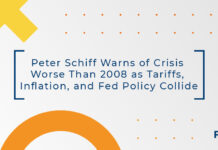Need to know what happened in crypto today? Here is the latest news on daily trends and events impacting Bitcoin price, blockchain, DeFi, NFTs, Web3 and crypto regulation.
Do Kwon and Terraform Labs were found liable for defrauding investors in a U.S. SEC civil case that ended on April 5. Expecting mining profitability to drop after the Bitcoin halving? Think again, says a market maker interviewed by Cointelegraph. Meanwhile, Solana’s non-vote transaction failure rate has hit a record 75% amid reports of degraded user experience on the network.
Do Kwon and Terraform Labs found liable for fraud
The United States Securities and Exchange Commission’s civil lawsuit against Terraform Labs and Do Kwon has ended, with a jury finding the former executive and his defunct company liable for defrauding investors.
Jurors made quick work of their deliberation, with the decision coming mere hours after Cointelegraph reported on the SEC’s in-trial allegations that Terraform was “built on lies.”
“We are pleased with today’s jury verdict holding Terraform Labs and Do Kwon liable for a massive crypto fraud,” said SEC enforcement director Gurbir Grewal. “Terraform Labs and Kwon, its former CEO, deceived investors about the stability of the crypto asset security and so-called algorithmic stablecoin Terra USD, and they further misled investors about whether a popular payment application used Terraform’s blockchain to process and settle payments.”
Terraform Labs collapsed in epic fashion in May 2022 after its algorithmic stablecoin crashed, triggering a massive contagion effect across the crypto industry.
Meanwhile, Kwon remains in Montenegro since his arrest last March. His extradition was annulled on April 5.
Bitcoin mining profitability won’t necessarily fall after halving
Bitcoin mining profitability won’t necessarily fall after the upcoming Bitcoin halving, despite a 50% Bitcoin supply issuance reduction, Laurent Benayoun, the CEO of Acheron Trading, told Cointelegraph.
“In dollar terms, it’s not obvious that miners would be worse off after the halving, quite the opposite… The decrease in mining rewards is going to be compensated by an increase in network fees,” he said.
The Bitcoin halving is set to reduce block issuance rewards from 6.25 BTC to 3.125 BTC on April 20. Following previous halvings, smaller mining firms were forced out of business due to the decreased block rewards.
However, this will be different after the 2024 halving due to the increasing network fees boosted by Ordinals inscriptions and Bitcoin-native decentralized finance (DeFi), or BTCFi. Benayoun said:
“We’ve seen NFTs popping up on the Bitcoin blockchain, and we’ve seen a number of projects trying to build DeFi on the Bitcoin network. So all those elements are leading to an increase in network fees.”
Solana struggles: Record 75% of users txs are failing
Roughly three-quarters of all transactions on the Solana network have been failing amid a deluge of activity brought by the recent memecoin mania on Solana.
However, proponents say the data is being widely misinterpreted.
Dune Analytics data shows that on April 4, just over 75% of all “non-vote” Solana transactions failed, the highest failure rate on record.
The uptick has been paralleled by a recent uproar from Solana users on social media, complaining of failed transactions and degraded user experience.
In an April 4 post to X, pseudonymous trader Altcoin Sherpa said that while he still believed Solana would cement itself as the blockchain network for retail adoption, he noted that the current user experience was currently less than ideal.
“As much as I think that SOL is the chain for retail this cycle — the experience is fucking brutal lately.”
However, in an April 4 post to X, vocal Solana proponent and Helius CEO Mert Mumtaz took issue with the claim that 75% of transactions were failing, noting that most failed non-vote transactions were simply “bot spam.”
Mumtaz claimed that the failed transactions chart was “not a good way of assessing user impact as most users don’t make it there to begin [with].”
Source: Cointelegraph.com




